PROGRAM SCHEDULE 2006-2007
20th Season
| Sun | Sep | 3 | 7:00 | Orchestral excerpts from Wagner's Ring
Please note the change in time from 2:00 p.m. in the afternoon (as originally scheduled) to 7:00 p.m. in the evening on Sunday
For over 40 years the orchestral music of Richard Wagner has been a constant companion, one to which I return again and again. One of the earliest LPs I ever got was by Leopold Stokowski of Ring music in Phase 4 Stereo (those who can remember this format are severely dating themselves!). I played it incessantly (and at a very loud volume) much to the annoyance and amusement of my parents and friends. This recording started me on a path leading deeper and deeper into an appreciation of late Romantic music in general and Wagner in particular.
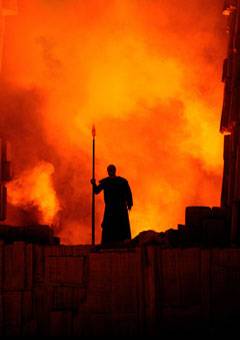
In an effort to popularize his music, Wagner made both his own arrangements of musical excerpts from all of his operas (including the Ring) as well as commissioned others to prepare their own versions. Many of these are the ones that we now still hear in the concert hall. Popularly known as “bleeding chunks”, these concert favourites allowed those who would never have been able to hear the complete Ring as Wagner originally intended an opportunity to become familiar with his unique sound world.
In celebration of Canada’s first Ring cycle by the Canadian Opera Company at the Four Seasons Centre for the Performing Arts, I am presenting a program which features these orchestral excerpts. Included will be several familiar items (such as “Ride of the Valkyries” and “Entrance of the Gods into Valhalla”) as well as less well known suites which have been assembled by a number of conductors. Many of the major Wagnerian conductors such as Wilhelm Furtwängler, Klaus Tennstedt, and George Szell will be featured. The program will conclude with a DVD performance of a suite of orchestral interludes from Götterdämmerung assembled by Erich Leinsdorf.
(js/js&ta)
|
| Sun | Oct | 15 | 2:00 | Cosi fan tutte
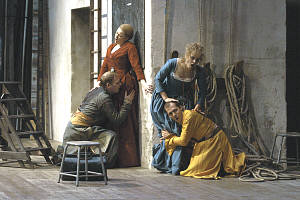
Cosi fan tutte (which in English means: Thus do all [women]) was the third and last collaboration of Mozart and Lorenzo da Ponte. It tells the story of two officers who enter a wager on the fidelity of their betrothed ladies, and decide to test it by disguising themselves and courting each other’s fiancee. Of all Mozart’s operas, this is the most carefully and beautifully crafted and was initialy well received. Soon after, however, it fell into near oblivion for almost 150 years, victim to both changing musical tastes, which affected all Mozart operas to a greater or lesser degree, and especially to the new moral sensibilities of the 19th century, which objected to the perceived frivolity and immorality of the subject. The chorus of critics wasn’t limited to a bunch of philistines; rather, it was led by none other than Beethoven and later, Wagner. It wasn’t until the early 20th century that Cosi fan tutte was revived, at first in heavily bowdlerized versions and only in the eve of WWII in the original version.
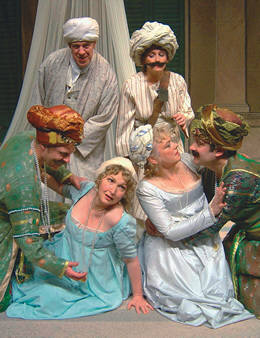
Some critics and scholars still feel somewhat uncomfortable with the subject even now and try to interpret the opera not as a comedy of manners, but rather as a deep psychological drama. The controversy is fed in part by the music itself, which often appears to belie the frivolity of the plot and its misogynistic message. But however one may chose to interpret the opera, there is no argument about the quality and sheer beauty of the music.
What makes Cosi fan tutte a true masterwork, however, is the masterful way — never equaled before and rarely since — of drawing very subtle musical portraits, and the way in which Mozart uses the music to propel both the action and character development.
(jn/coc)
|
| Sun | Oct | 29 | 2:00 | Viola as Soloist
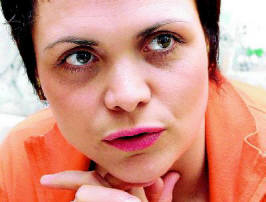
Although the viola has a rich, unique sonority, full-bodied, dark-toned and earthy, we tend to regard it as a modest, supporting instrument used for playing inner harmonies. It is rare to find a piece written before the 20th century which features a solo viola part to be played in front of an orchestra, but one great exception is: Berlioz's Harold in Italy. Toronto celebrates the precious opportunity to hear this work in live performances on November 15th and 16th. Our program introduces first a live concert recording of Harold in Italy with Tabea Zimmermann as soloist on DVD.
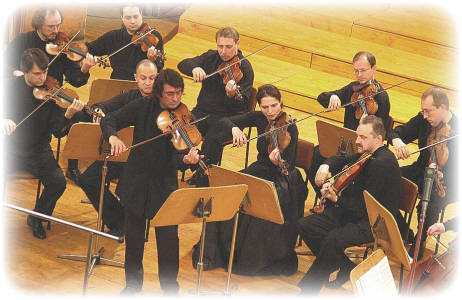
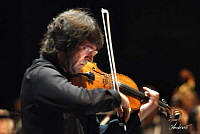 In the 20th century, after World War II in particular, violas welcomed a flourishing time of harvest with new compositions created for them. We will sample the sound of works by Walton, Takemitsu, Gubaidulina, etc. The highlight of the second half will be another DVD presentation — Schnittke's Viola Concerto, with Yuri Bashmet as soloist. In the 20th century, after World War II in particular, violas welcomed a flourishing time of harvest with new compositions created for them. We will sample the sound of works by Walton, Takemitsu, Gubaidulina, etc. The highlight of the second half will be another DVD presentation — Schnittke's Viola Concerto, with Yuri Bashmet as soloist.
Toronto Symphony Orchestra concerts:
Wed. 15 & Thurs. 16, November, 2006 at 8:00 p.m.
- Andrew Davis, conductor
- Stewart Goodyear, piano
- Teng Li, viola
- Bach arranged by Davis: Passacaglia and Fugue in C Minor
- Mozart: Piano Concerto No. 21 K. 467
- Berlioz: Harold in Italy
Tickets — http://www.tso.ca — or — 416.593.4828.
$120, $91.50, $85, $75, $65.50, $50, $41.50, $35
(ta/js&ta)
|
| Sun | Nov | 19 | 2:00 | The Overcoat
Based on short stories by Nikolai Gogol
Music by Dmitri Shostakovich
A DVD presentation
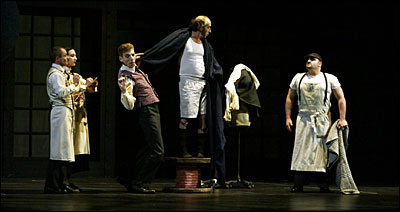
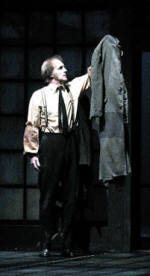 Dazzling and brawling, funny and sexy and sad, the international hit The Overcoat is a seamless integration of theatre, music, and design. Based on Gogol's wildly imaginative short stories and set to the music of Shostakovich, The Overcoat uses aesthetic inspiration from such revolutionary artists as Charlie Chaplin and Fritz Lang — as well as a cast of 22 actors and a set two stories high — to create an entirely fresh experience of music theatre. Dazzling and brawling, funny and sexy and sad, the international hit The Overcoat is a seamless integration of theatre, music, and design. Based on Gogol's wildly imaginative short stories and set to the music of Shostakovich, The Overcoat uses aesthetic inspiration from such revolutionary artists as Charlie Chaplin and Fritz Lang — as well as a cast of 22 actors and a set two stories high — to create an entirely fresh experience of music theatre.
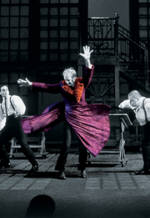 In this exhilarating piece, a simple man's life takes on a brilliant glow when he gets a fashionable new coat, but his desire to be accepted may have dark consequences. In this exhilarating piece, a simple man's life takes on a brilliant glow when he gets a fashionable new coat, but his desire to be accepted may have dark consequences.
This DVD presentation is in celebration of the Shostakovich year. We will round out the program with other Shostakovich-related material.
(js/bs)
|
| Fri | Dec | 15 | 6:30 |  Christmas Party & Christmas Party &
20th anniversary celebration
Each year, the Classical Music Club Toronto holds a Christmas party for members and their guests. We hold the party to a FRIDAY night because Saturdays in December tend to be fully booked for many of the Classical Music Club Toronto members.
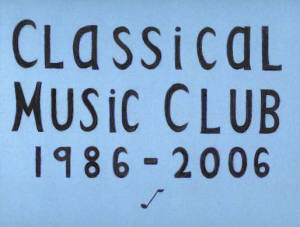
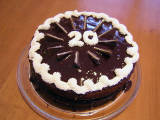 This year, we are also celebrating our 20th year as a club. How different things were in 1986. People were busy rebuilding their recorded music collections with shiny Compact Discs. A post office box number was the way to contact the club. We shall have some memorabilia on display, and talk about the good old days! This year, we are also celebrating our 20th year as a club. How different things were in 1986. People were busy rebuilding their recorded music collections with shiny Compact Discs. A post office box number was the way to contact the club. We shall have some memorabilia on display, and talk about the good old days!
 Details including location will be sent to members via e-mail or by flyer. The kitchen will open at 6:30, and the party proper will begin around 7 p.m. Details including location will be sent to members via e-mail or by flyer. The kitchen will open at 6:30, and the party proper will begin around 7 p.m.
()
|
| Sun | Jan | 14 | 2:00 | Brahms Symphonies, Intimately
Brahms said “writing a symphony is no laughing matter” and certainly the fact that he was seen as the natural successor to Beethoven weighed heavily on his mind. So much so that he was 43 before he completed his first symphony in 1876. Then, as if to catch up on lost time, within a decade, he had completed all four symphonies embracing an extraordinary range of styles and emotional expressions.
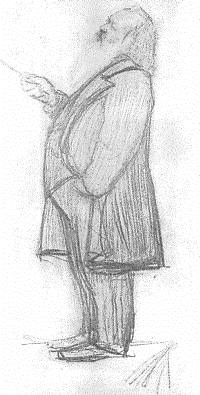
For this Brahms session on January 14, 2007, you will hear interpretations of Brahms' symphonies modeled more or less after the Court Orchestra of Meiningen, the orchestra with which Brahms was associated for a large part of his life. With only 49 members, the Meiningen Court Orchestra was a miniature for its time but that didn't keep Brahms away. On the contrary, he worked with the Meiningen regularly and when he was given the chance to augment its string section for the premiere of his fourth symphony, he declined. Before you jump to any conclusions, what Brahms liked about Meiningen may have been its precision and style rather than its size.
One conductor associated with the Meiningen was Fritz Steinbach. According to Brahms' friend and biographer Max Kalbeck, Steinbach modeled his conducting on Brahms' own and became the composer's favourite interpreter of his works. We have no recordings of Steinbach, but we do have a 1933 typescript by his disciple Walter Blume which details Steinbach's Brahms interpretations bar by bar. The book conveys a style with far more local nuances of tempo and articulation than anyone has used for decades.
Modern recordings of the Brahms symphonies, notably those by Norrington, make an occasional nod to the book but Mackerras engages with it more fully but not as a recipe.
On January 14th, come hear a selection of Brahms' symphonies interpreted with great freedom and elasticity of phrasing and tempo — intimately. For those who associate Brahms' symphonies with larger orchestras, the session will end with a satisfying oomph!
(py/py)
[Discography]
|
| Sun | Feb | 25 | 2:00 |
Mahler: Symphony No. 2 “Resurrection”
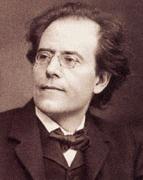 Gustav Mahler (1860–1911) had a special gift for expressing and analyzing his experience in musical language. Many of his compositions convey his understanding or philosophy of life. For him, human life was alternately contemptible and pitiable, often an occasion for anger or despair. Sometimes it seemed that redemption and final resurrection could unite these extremes; at other times, this seemed too good to be true. As a result, he lived with an intense inner struggle that appears in so many of his works. Gustav Mahler (1860–1911) had a special gift for expressing and analyzing his experience in musical language. Many of his compositions convey his understanding or philosophy of life. For him, human life was alternately contemptible and pitiable, often an occasion for anger or despair. Sometimes it seemed that redemption and final resurrection could unite these extremes; at other times, this seemed too good to be true. As a result, he lived with an intense inner struggle that appears in so many of his works.
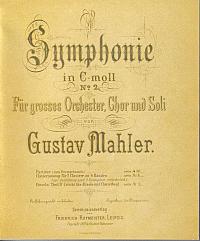 For his second symphony, Mahler devised a narrative program. Of the first movement he wrote, “It is the hero of my first symphony whom I bear to the grave here and whose life I reflect in a pure mirror.” This Allegro movement opens with an explosion of anger that will return later in the symphony followed by a funeral march which alternates with much lighter, almost dream-like passages. This substantial movement asks the momentous questions — “To what purpose have you lived?” and “Is there life after death?” — to which the entire symphony offers an answer.
For his second symphony, Mahler devised a narrative program. Of the first movement he wrote, “It is the hero of my first symphony whom I bear to the grave here and whose life I reflect in a pure mirror.” This Allegro movement opens with an explosion of anger that will return later in the symphony followed by a funeral march which alternates with much lighter, almost dream-like passages. This substantial movement asks the momentous questions — “To what purpose have you lived?” and “Is there life after death?” — to which the entire symphony offers an answer.
The composer once referred to the three central movements as “intermezzi”. The Andante movement, in the style of a pastoral Ländler, is a remembrance of happy times in the life of the deceased. The third movement Scherzo, derived from Mahler’s song Des Antonius von Padua Fischpredigt (St. Anthony of Padua’s Sermon to the Fishes), represents a complete loss of faith and regards life as meaningless. By contrast, the sublime but brief fourth movement, Urlicht (Primeval Light), — one of the most beautiful and inspiring songs Mahler ever wrote — marks a rebirth of faith. In this movement, “the voice of simple faith reaches our ears,” as the composer said of it. This calm is short lived.
The massive Finale of this massive symphony begins with a percussion crescendo followed by another march. There are apocalyptic fanfares both on and off stage. Finally, a great climax silences the din; the last trumpet is sounded. Then, the choir enters singing Klopstock’s Resurrection ode. The two soloists join the chorus where Mahler’s words replace Klopstock’s and the music heads serenely towards its ecstatic conclusion about the reality of divine love and everlasting life. The choir sings “Rise again, yes, you shall rise again,” followed by the soloists who sing “I shall die in order to live. … Your beating heart shall lead you to God!” “A feeling of overwhelming love” Mahler wrote, “fills us with blissful knowledge and illuminates our existence.”
In the first part of our program, we will listen to selections from a very early performance and to two of the songs which Mahler drew upon. In the second part, we will listen to (and may watch on DVD) a performance of the complete symphony.
(jg/ta&js)
[Discography]
|
| Sun | Mar | 11 | 2:00 |
War and Music - Part 3
No 20th-century Russian composer was as directly impacted by World War II as Shostakovich. 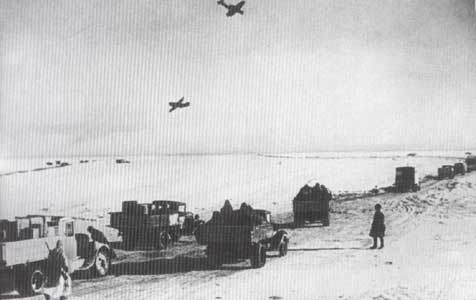 With his 7th Symphony (the “Leningrad”), which he composed while enduring — and barely surviving — the terrible two-year long siege of Leningrad (St. Petersburg) by the Nazi armies, he became the official artistic symbol of Russian heroism during the war. Apart from the general horrors of war, one aspect of World War II which affected Shostakovich more than anything else was the Holocaust, in part because he lost quite a few close Jewish friends in it and it inspired a number of major works. These works are an indictment not only of the Holocaust but also of the anti-Semitic policies of the Soviet regime, who not only tried to minimize or even ignore the destruction of European Jewry, but which itself continues to persecute Jews in Russia (in fact, Shostakovich lost even more Jewish friends to the Stalinist purges following the war). It is no wonder, then, that he ran — yet again — afoul of the authorities, and that some of these works were banned until close to the end of his life. With his 7th Symphony (the “Leningrad”), which he composed while enduring — and barely surviving — the terrible two-year long siege of Leningrad (St. Petersburg) by the Nazi armies, he became the official artistic symbol of Russian heroism during the war. Apart from the general horrors of war, one aspect of World War II which affected Shostakovich more than anything else was the Holocaust, in part because he lost quite a few close Jewish friends in it and it inspired a number of major works. These works are an indictment not only of the Holocaust but also of the anti-Semitic policies of the Soviet regime, who not only tried to minimize or even ignore the destruction of European Jewry, but which itself continues to persecute Jews in Russia (in fact, Shostakovich lost even more Jewish friends to the Stalinist purges following the war). It is no wonder, then, that he ran — yet again — afoul of the authorities, and that some of these works were banned until close to the end of his life.
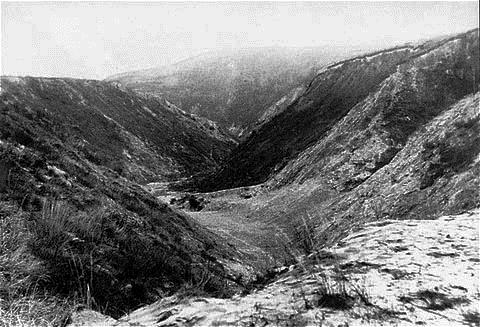
(dpa&jn/bs)
[Discography]
|
| Sat | Apr | 14 | 2:00 | Kent Nagano
NOTE: Different day of the week!
California-born conductor Kent Nagano seems to be one of the most sought after talents in the current classical music world, both for orchestra concerts and operas.
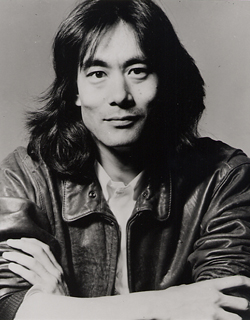 In September 2006, Nagano took over from Zubin Mehta as General Music Director of the Bavarian State Opera in Munich. The 2006-2007 season is the first he heads as Music Director of the Orchestre symphonique de Montréal. It is quite beyond belief that he has been managing such massive works as Schönberg's Gurrelieder and Mahler's Symphony No. 7 in the short period of only eight months. John and I had the opportunity to travel to Montréal to attend a concert performance of Tristan und Isolde in February. Their caring attention to detail made this gigantic piece so transparent and took the audience to a fresh horizon of ecstasy. In September 2006, Nagano took over from Zubin Mehta as General Music Director of the Bavarian State Opera in Munich. The 2006-2007 season is the first he heads as Music Director of the Orchestre symphonique de Montréal. It is quite beyond belief that he has been managing such massive works as Schönberg's Gurrelieder and Mahler's Symphony No. 7 in the short period of only eight months. John and I had the opportunity to travel to Montréal to attend a concert performance of Tristan und Isolde in February. Their caring attention to detail made this gigantic piece so transparent and took the audience to a fresh horizon of ecstasy.
Nagano and the Orchestre symphonique de Montréal will complete their first coast-to-coast Canadian tour this month. And as a part of this tour, they will appear at Roy Thomson Hall on April 21st. Welcoming them on their visit to Toronto, we have prepared a program of their live recordings from the earlier part of the 2006-2007 season. Live from Place des Arts through radio broadcasts.
http://www.kentnagano.com/
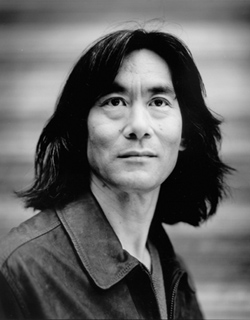 Orchestre symphonique de Montréal
Orchestre symphonique de Montréal
Sat. 21, April, 2007 at 8:00 p.m. Roy Thomson Hall, Toronto
Kent Nagano, conductor
Michael Schade, tenor
- Rossini: Overture to William Tell
- Rossini and Mozart: Selected arias
- Ana Sokolovic: Concerto pour orchestre
- Beethoven: Symphony No. 7
http://www.tso.ca
Seating is limited - call 416.593.4828 for ticket availability.
$120, $91.50, $85, $75, $65.50, $50, $41.50, $35
(ta/ta&js)
|
| Sun | May | 27 | 2:00 | Rite of Spring
On May 29, 1913 at Théâtre Champ-Elysées, Paris, in the season of flowers and freshly green buds which surrounds us now, the premiere of Le Sacre du Printemps was one of the most scandalous, yet epoch-making events in the history of music. Through recent recordings of piano versions and a full concert on DVD, we will explore the innovative quality of the piece from the aspects of RHYTHM, HARMONY, and ORCHESTRATION in three parts.
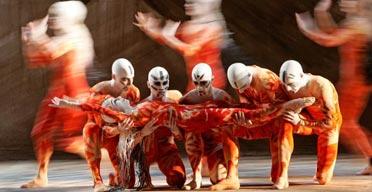
Part I: RHYTHM
Dickran Atamian, piano
Solo Piano Version by Sam Raphling
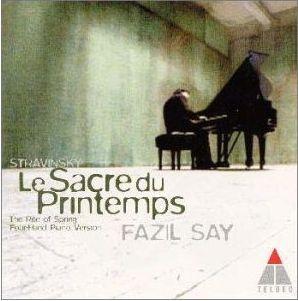
Part II: HARMONY
Fazil Say, piano
Four-Hand Piano Version by Fazil Say,
performed by Fazil Say alone (superimposed and synchronized)
Part III: ORCHESTRATION
DVD presentation
Seiji Ozawa conducts
Symphonieorchester des Bayerischen Rundfunks
Live recording, on June 7, 1983 at Herkules Saal, München
Come and join us to celebrate the energy of life.
(ta/js&ta)
|
| Sat | Jun | 16 | 7:00 | Pianists
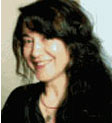
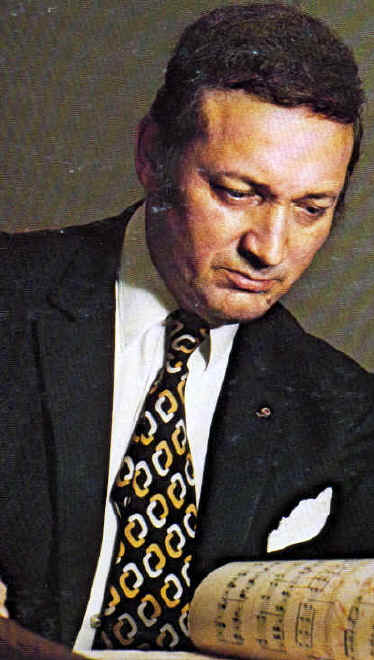
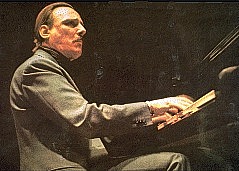
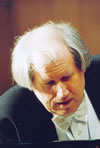
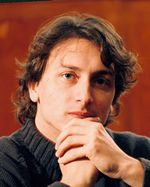
PIANISTS! What a breed! Although every musical instrument has its challenges and rewards, no other compares with the eighty-eight toothed beast in both potential and complexity. Only the piano can satisfactorily supply full harmony and melody, both enhanced by its vast range of rhythmic and dynamic effects. How is this possible with an instrument that creates sound only by percussion: felt hitting metal? That's what we'll be able to see and hear in an all-DVD presentation of some of the magicians of the keyboard, both past and present: Argerich, Cziffra, Michelangeli, Sokolov, Libetta, and more! Non-musicians can simply watch, listen, and enjoy, while the rest of us, who've confronted the Steinway in its lair and emerged relatively unscathed, will marvel and learn.
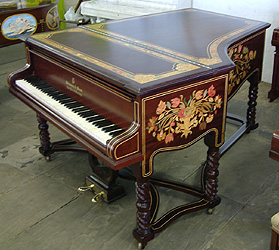
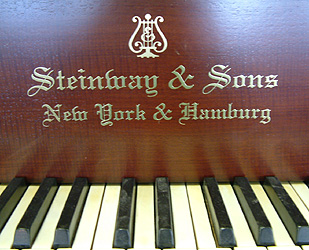
(dh/js&ta)
|
| Sun | Jun | 24 | All day | Pride Day CMC Booth
|
| | | |
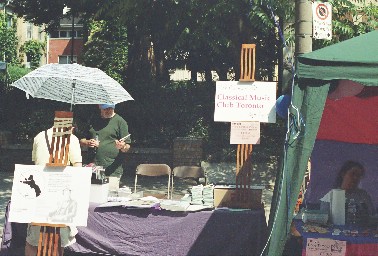
Drop by our club´s booth on Pride Day, June 24, 2007
We´re located with the community organisations, on Church St. one block north of Wellesley at Dundonald
Club members will be there to answer your questions
And we will have some previously enjoyed CDs for sale.
Pride Toronto Official Web site
|
| Sat | Jul | 7 | 7:00 | A Midsummer Night's Dream, Britten's opera on DVD presentation
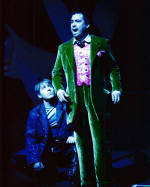 Although the true Midsummer Night (June 21) is past, here is a real summer treat � a production of Britten�s operatic adaptation of the immortal Shakespeare play A Midsummer Night’s Dream. All the recognizable ingredients of the original — quarrelling fairies, mismatched lovers, and hilarious common-folk putting on a “play within a play” — are here, all enchanted by the sorcery of a mysterious night in the woods. Britten creates a unique sound world to represent each of these groups lost in the forest and blends them into a magical musical universe.
Although the true Midsummer Night (June 21) is past, here is a real summer treat � a production of Britten�s operatic adaptation of the immortal Shakespeare play A Midsummer Night’s Dream. All the recognizable ingredients of the original — quarrelling fairies, mismatched lovers, and hilarious common-folk putting on a “play within a play” — are here, all enchanted by the sorcery of a mysterious night in the woods. Britten creates a unique sound world to represent each of these groups lost in the forest and blends them into a magical musical universe.
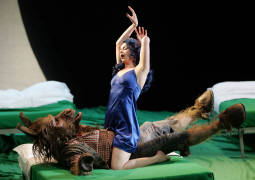
In a production created by the Canadian team, Robert Carsen (stage director) and Michael Levine (designer), this is a live performance on DVD filmed at Teatro del Liceu, Barcelona, in April 2005 and stars handsome countertenor David Daniels as Oberon, king of the fairies. Michael Levine’s striking design consists of an immense bed-platform covering the entire stage complete with oversized green bedspread. The bed theme continues with massive pillows for the characters to recline on as well as three beds which are suspended in mid-air as the story unfolds for the pairs of lovers sleeping in the woods. Dramatic development is also emphasized in the torn and ripped costumes of the lovers who become gradually undressed, scene by scene. Let’s share the charming, cool spectacle of romance with a hint of bitterness.
(js/bs)
|
| Sat | Jul | 21 | 7:00 | An Evening at the Operetta
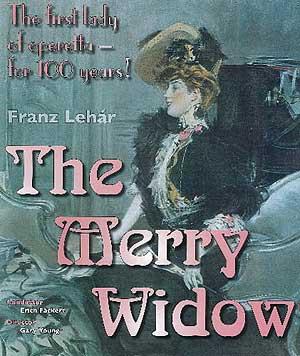 From the mid-19th century until the end of World War I, operetta, which can be defined broadly as light opera with acting, used to be the most popular form of musical entertainment. In spite of its light character in terms of content — mostly comical, even farcical in character, relying heavily on witty dialogue — it is, in fact, a very demanding art form, as the calibre of vocal writing is as high as that of "serious" opera, if not higher (because of the abundance of virtuoso numbers). That perhaps, together with changing taste, may be the cause of its eventual decline and its being superseded by the musical. Only a handful of operettas, by Johann Strauss, Jr., and by Franz Lehár, are still regularly performed. In this program you will be treated to selections from some of the lesser-known operettas by Viennese composers as well from the even wittier and more satirical operettas by the Parisian Jacques Offenbach. From the mid-19th century until the end of World War I, operetta, which can be defined broadly as light opera with acting, used to be the most popular form of musical entertainment. In spite of its light character in terms of content — mostly comical, even farcical in character, relying heavily on witty dialogue — it is, in fact, a very demanding art form, as the calibre of vocal writing is as high as that of "serious" opera, if not higher (because of the abundance of virtuoso numbers). That perhaps, together with changing taste, may be the cause of its eventual decline and its being superseded by the musical. Only a handful of operettas, by Johann Strauss, Jr., and by Franz Lehár, are still regularly performed. In this program you will be treated to selections from some of the lesser-known operettas by Viennese composers as well from the even wittier and more satirical operettas by the Parisian Jacques Offenbach.
(jn/ta&js)
|
| Sat | Aug | 18 | 7:00 | “Bring Your Own Recording”
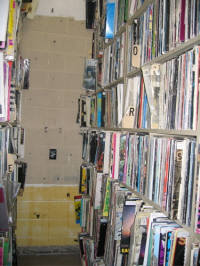 Members are invited to bring along a recording to share with other club members. We will play your recording and ask you to introduce it to the group. Please limit the time of your selection to about 10 minutes. This will allow everyone to have an opportunity to participate. Your recording can be a DVD, conventional CD or an LP (yes, we are arranging to have a good vinyl player available!) Your library may look like the one pictured, or be more modest. Do a little digging to find that gem of classical music. Members are invited to bring along a recording to share with other club members. We will play your recording and ask you to introduce it to the group. Please limit the time of your selection to about 10 minutes. This will allow everyone to have an opportunity to participate. Your recording can be a DVD, conventional CD or an LP (yes, we are arranging to have a good vinyl player available!) Your library may look like the one pictured, or be more modest. Do a little digging to find that gem of classical music.
(bc/bs)
|
|

